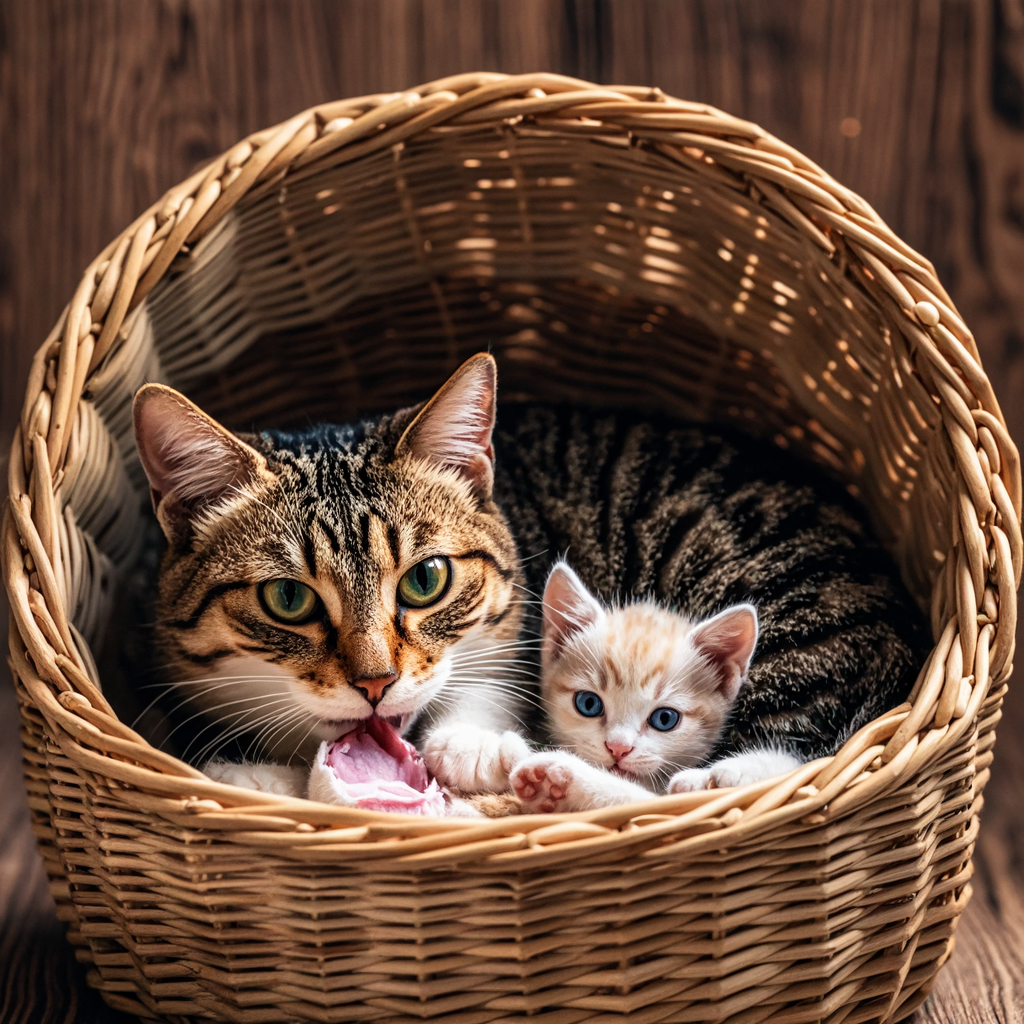When your cat is expecting kittens, it’s important to provide the right care and preparation to ensure a smooth birthing process and the health of both the mother and her kittens. Here are essential tips for preparing for your pregnant cat to give birth.
1. Understand the Timeline
First, it’s important to know the gestation period for cats:
- Gestation Period: A cat’s pregnancy typically lasts about 63-65 days, or roughly 9 weeks. Knowing this timeline can help you prepare adequately for the birthing process.
2. Create a Comfortable Nesting Area
Provide a safe, quiet, and comfortable space for your cat to give birth:
- Choose a Quiet Spot: Select a quiet, low-traffic area of your home where your cat can feel secure and undisturbed.
- Nesting Box: Prepare a nesting box using a large cardboard box or a plastic storage container. Line it with soft, clean towels or blankets. The box should be large enough for the mother to move around comfortably but small enough to feel cozy.
- Easy Access: Ensure the sides of the box are low enough for the cat to easily enter and exit, but high enough to keep the kittens contained.
3. Gather Necessary Supplies
Having the right supplies on hand can make the birthing process smoother:
- Clean Towels: Plenty of clean towels to help dry the kittens and to keep the nesting area clean.
- Heating Pad: A heating pad set on low, wrapped in a towel, can help keep the kittens warm, especially in cooler environments.
- Disposable Gloves: For hygiene reasons, it’s a good idea to have disposable gloves available.
- Scissors and Dental Floss: In case the mother needs help with the umbilical cords. Scissors should be sterilized, and the dental floss can be used to tie off the cords.
- Waste Disposal Bags: For easy cleanup of soiled towels and other waste.
4. Monitor Your Cat’s Health
Keep a close eye on your cat’s health and behavior during the final stages of pregnancy:
- Regular Vet Check-Ups: Ensure your cat has regular veterinary check-ups to monitor her health and the development of the kittens.
- Signs of Labor: Be aware of signs that labor is approaching, such as nesting behavior, restlessness, loss of appetite, and a drop in body temperature.
5. Be Ready for Labor and Delivery
When your cat goes into labor, be prepared to assist if necessary:
- Stay Calm: Keep the environment calm and quiet. Your presence can be reassuring, but give your cat space if she prefers to be alone.
- Observe: Monitor the birthing process from a distance. Most cats can deliver their kittens without assistance, but be ready to step in if there are complications.
- Help if Needed: If a kitten is not breathing after birth, you may need to gently rub it with a towel to stimulate breathing. If the mother does not cut the umbilical cord, you can tie it off with dental floss and cut it with sterilized scissors, leaving about an inch from the kitten’s body.
6. Post-Birth Care
After the kittens are born, provide the necessary care for both the mother and her new litter:
- Cleanliness: Keep the nesting area clean and dry. Replace soiled towels or blankets as needed.
- Warmth: Ensure the kittens are kept warm, especially during the first few weeks of life when they are unable to regulate their body temperature.
- Feeding: Monitor the kittens to ensure they are nursing properly. If the mother is not producing enough milk or if there are too many kittens, you may need to supplement with kitten formula.
- Vet Check: Schedule a post-birth check-up with your veterinarian to ensure the health of the mother and her kittens.
7. Long-Term Care and Socialization
As the kittens grow, continue to provide care and start socializing them:
- Weaning: Begin introducing solid food around 4 weeks of age. Use a high-quality kitten food and gradually reduce their dependence on the mother’s milk.
- Socialization: Handle the kittens gently and frequently to help them become accustomed to human interaction. This will make them well-adjusted pets.
- Vaccinations and Deworming: Follow your veterinarian’s recommendations for vaccinations and deworming to keep the kittens healthy.
Conclusion
Preparing for the birth of kittens involves creating a safe and comfortable environment, gathering necessary supplies, monitoring your cat’s health, and being ready to assist during labor if needed. Providing proper post-birth care and early socialization will help ensure the health and well-being of both the mother and her kittens. By being well-prepared, you can make the birthing process smoother and more successful for your pregnant cat.
